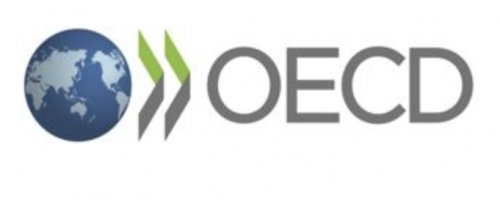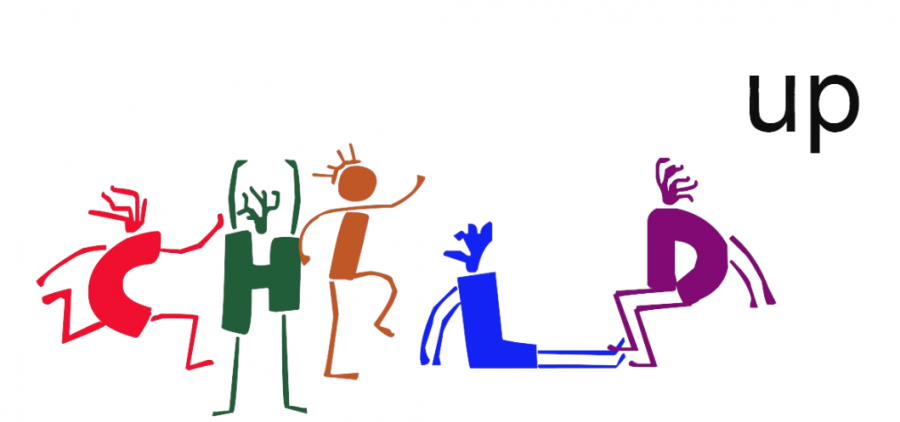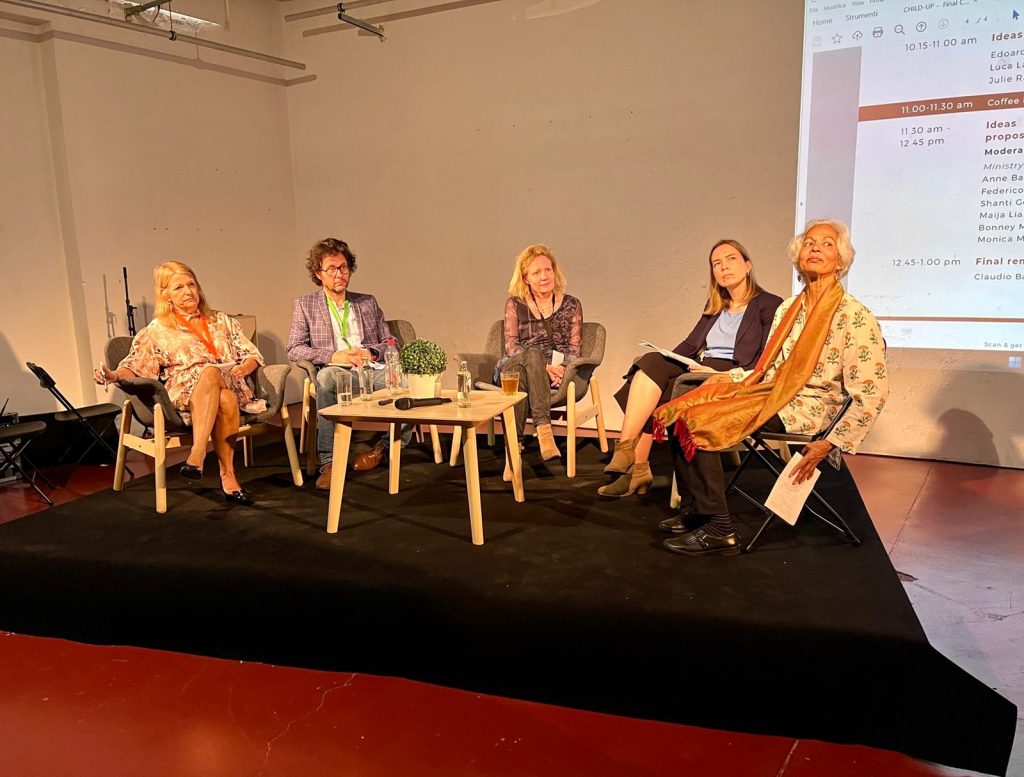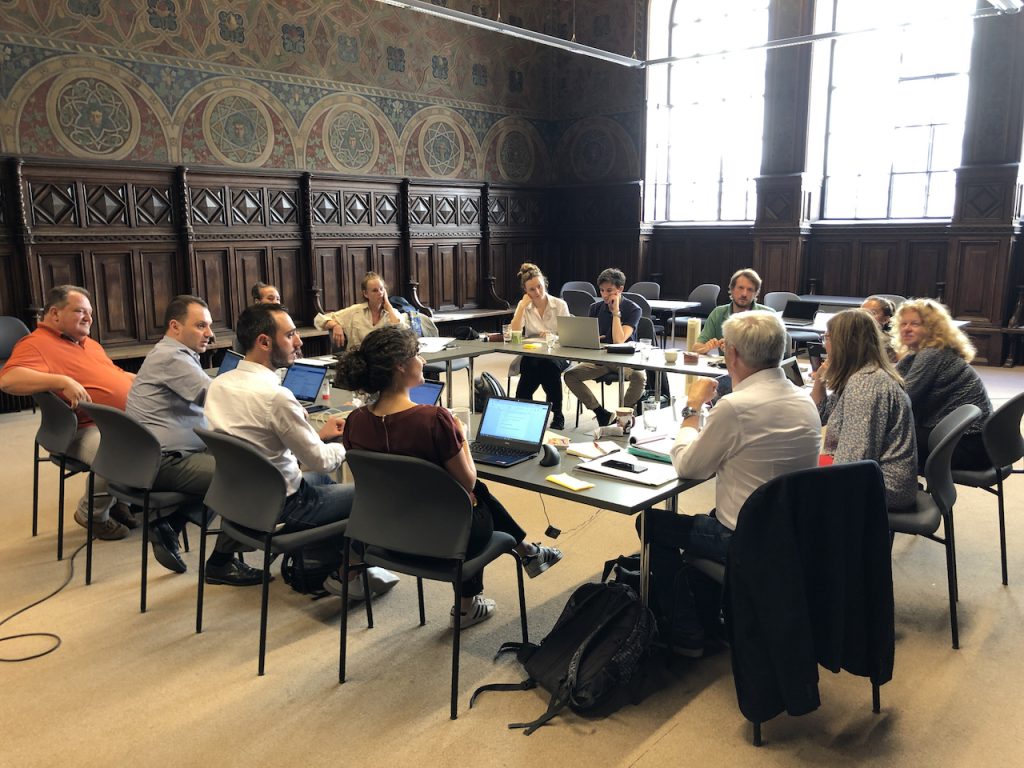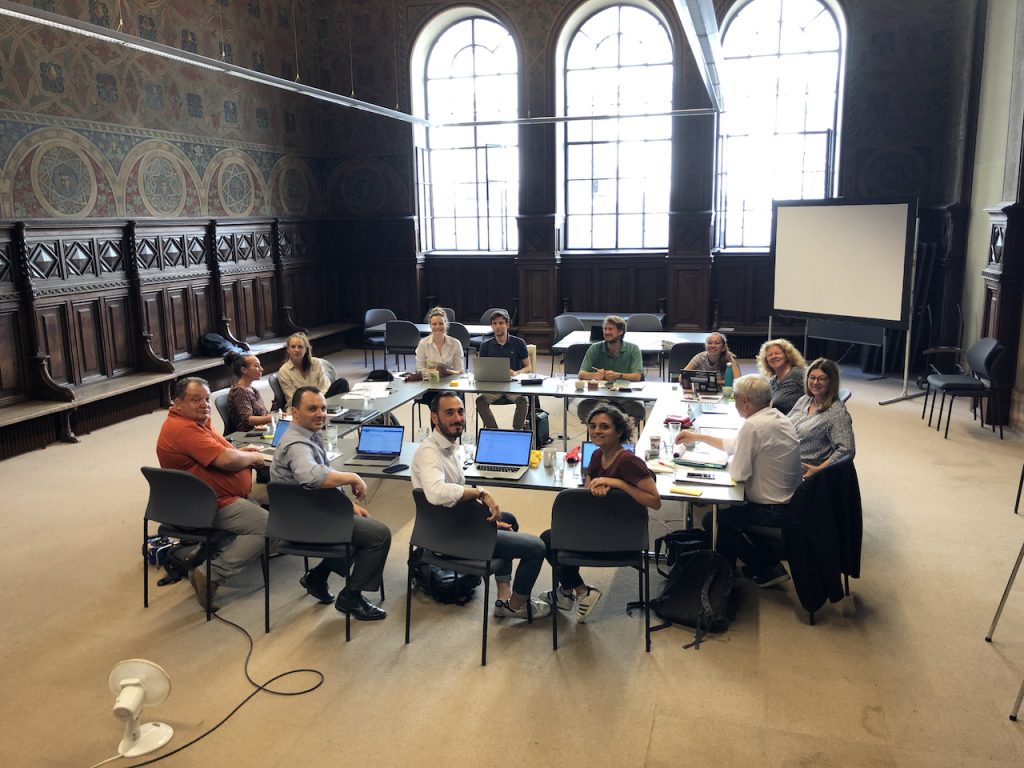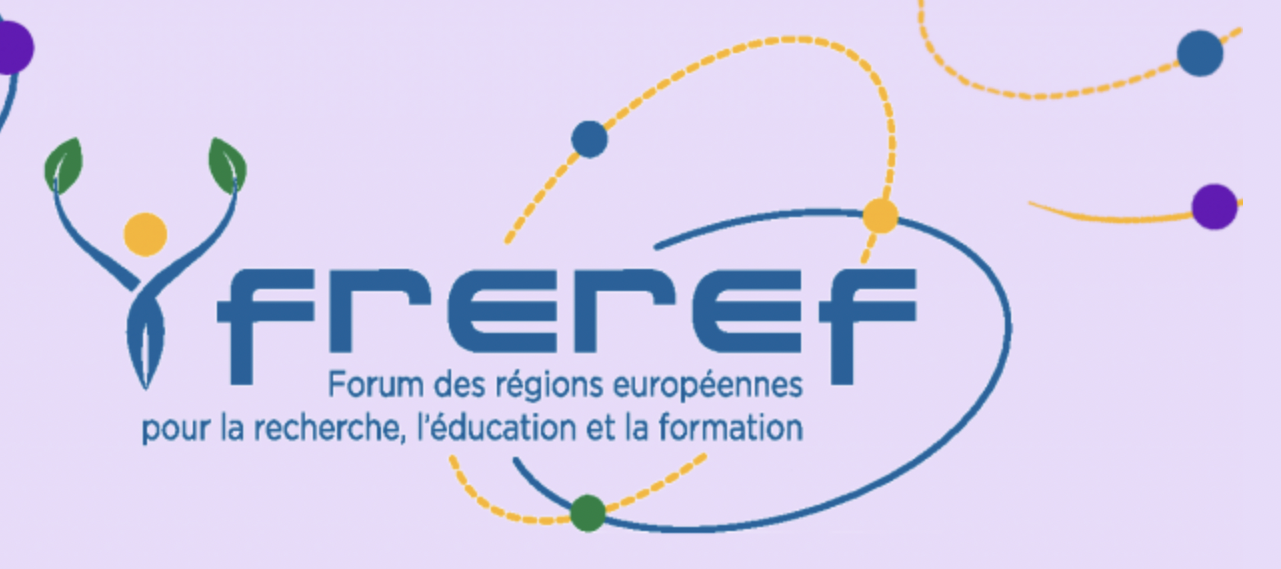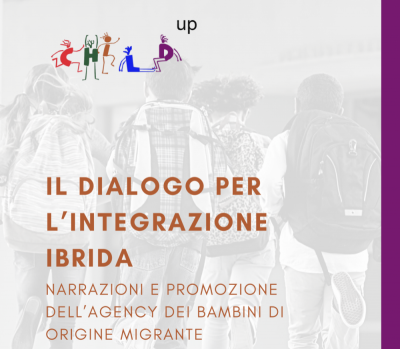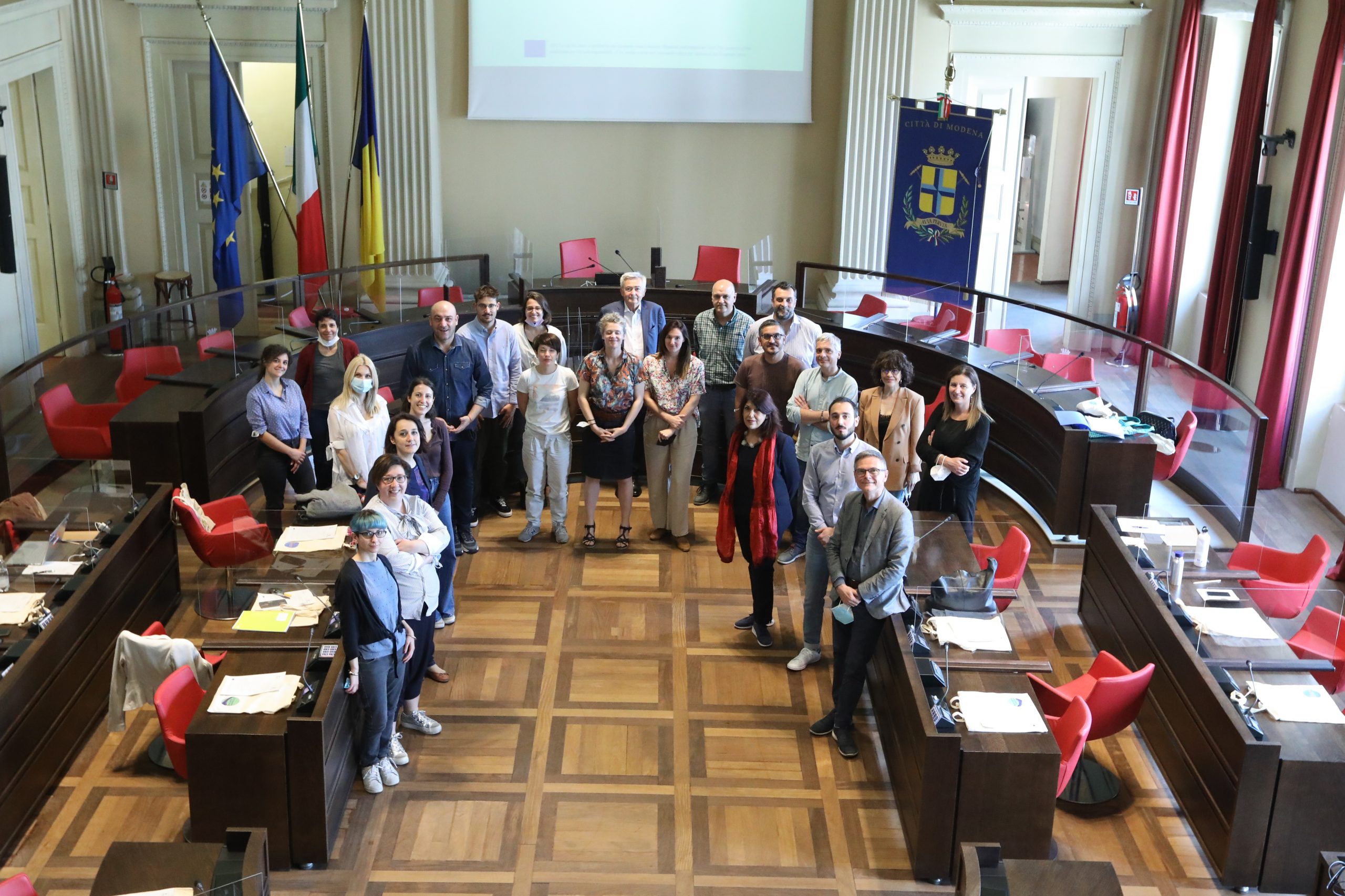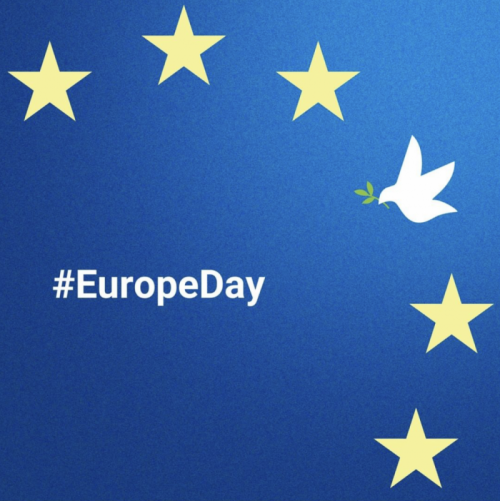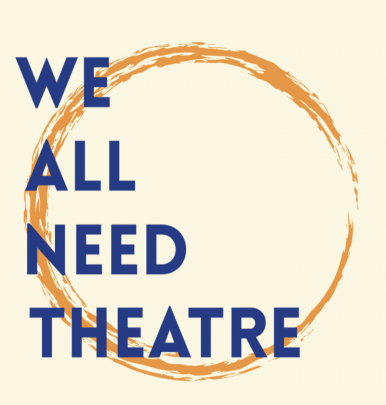CHILD-UP Final Conference in Bruxelles
The International Institute of Humanitarian Law organised, in collaboration with the University of Liege and the University of Modena and Reggio Emilia (UNIMORE), the international final conference of the EU-funded project “CHILD-UP”. The conference was held in Brussels (Belgium) on 9.10 June 2022 and focused on “Dialogue for Hybrid Integration – Narratives and promotion of agency of children with migrant background”.
The project “Children Hybrid Integration: Learning Dialogue as a way of Upgrading Policies of Participation – CHILD-UP ” was funded by the Horizon 2020 programme of the European Union for a period of 3 years, from January 2019 to June 2022, which was extended of 6 months extension due to the impact of the pandemic. The partnership, coordinated by the University of Modena and Reggio Emilia (UNIMORE), included the Center for the Research, Training and Consultancy at the Protestant University of Dresden (ZFWB gGMBH), the Jagiellonian University of Krakow (UJ), the University of Liege (ULIEGE), the University of Northampton Higher Education Corporation (UON), the Malmoe University (MAU), the Seinäjoki University of Applied Sciences (SeAMK), the International Institute of Humanitarian Law (IIHL), the European School Heads Association (ESHA), and the Fondation des Régions Européennes pour la Recherche, l’Éducation et la Formation (FREREF). The project researched the social conditions and the degree of migrant children’s integration in 7 selected EU countries through social participation, taking into primary account gender differences, legal status and age groups, with the final aim of proposing an innovative approach to understanding and transforming their social condition through the agency.
The conference was held in Brussels over two days, with the contribution of 41 speakers who discussed, within different thematic sessions, both the research results and the policy-related outcomes of the project.
The welcome addresses – delivered by Claudio Baraldi from UNIMORE (project coordinator), Bernard De Vos, representing the Federation Wallonie-Bruxelles, and Marco Martinello, from the Centre for Ethnic and Migration Studies of the University of Liege – were followed by the presentation of the project results by the representatives of the different research partners of the consortium, namely Claudio Baraldi and Sara Amadasi (UNIMORE), Shannon Damery, (CEDEM, University of Liege), Aino Alaverdyan (Seinäjoki University of Applied Scienze, SeAMK), Justyna Struzik (Jagiellonian University in Krakow), and Federico Farini (University of Northampton UON).
Professor Adrian Holliday, among the most distinguished international experts in the field of applied linguistics and intercultural education, delivered a keynote speech on “The importance of recovering hybrid realities”, followed by three interactive parallel sessions on Research, Practices and Policy-making, aimed at boosting new ideas and exchanging the perspectives of different categories of relevant stakeholders in the field of the integration of migrant children in the European educational systems.
The second day of the conference was devoted to a hackathon session coordinated by the IIHL, ESHA and FREREF, whose results were then elaborated by a final “Ideas Forum” which involved representatives of institutions and organisations active in the field of education, including the DG Education and Culture of the European Commission, the UNHCR Division of Resilience and Solutions, the City of London Corporation, the Lifelong Learning Platform, and SINGA France
If you are interested in the project and its results, please visit the CHILD-UP website here and consult the outcomes: reports, training materials, digital archives and much more tools are available!
CALL TO 2022 FREREF Day: The regions and Europe in support of transitions
On the occasion of the 2022 Edition of the FREREF Day, we are pleased to invite you to two different events by the end of May.
The first one is an online Side event that will be held on 23rd May from 10.30 to 12.30 by the Special Interest Group to discuss about “Policy initiatives to make school an inclusive learning environment”.
Since Fondation des Régions Européennes pour la Recherche, l’Education, et la Formation (FREREF) has been involved in the development of the CHILD-UP project for three years, this event is an opportunity to exchange about what should be done to make schools an inclusive learning environment based on the findings of the project and on the experience in the field of inclusion, education or research. In the Special Interest Group discussion, CHILD-UP would constitute the starting point of the debate. If you are interested in attending the event you can register here and find the full programme at the following link.
The second event is a two half-days session that will be held on 24th and 25th of May in Brussels to celebrate the FREREF Day on “The regions and Europe in support of transitions”. The workshop will discuss with territorial and European stakeholders the main crucial aspects of transitions with a focus on digital transformation, mobility and personal transitions driven by a sustainable society.
The registration to the event is available here.
Have a look at the agenda!
CHILD-UP National Conference on Dialogue for Hybrid Integration
On 26th May 2022 we are pleased to invite you to the Italian final conference of the CHILD UP project on dialogue for hybrid integration: Narratives and the promotion of agency of children of migrant origin at the Department of Linguistic and Cultural Studies of the University of Modena and Reggio Emilia (UNIMORE).
This meeting aims to present the main results of the research conducted in Italy and the impact the project may have on different educational practices in the field of research and policy.
The conference will be held in Italian and it will take place at the University of Modena in Largo Sant’Eufemia 19 in Aula B06 from 9.00 am to 5.30 pm CEST. The participation in the seminar is free of charge but registration is compulsory for reasons of room capacity. Therefore, if interested we invite you to register at the following link.
The full programme is available here.
Europe Day – celebrating 72 years of peace and unity in Europe
Five years after the end of the Second World War, European governments, hoping to recover from the devastating consequences of the war, came up with the first specific plan for the creation of a European community.
On 9thMay 1950, French Foreign Minister Robert Schuman, in his visionary speech, proposed the creation of the ambitius plan to secure long-term peace in post-war Europe, which called for the creation of the European Coal and Steel Community one year later. In this way, member states would pool production of these raw materials in order to avoid future wars.
Robert Schuman’s visionary speech is commemorated every year on Europe Day, the 9th of May, as the anniversary of the ‘Schuman Declaration‘ and the beginning of what is now the European Union.
The European Day is a call for the renewal of the democracy among the European states about the war in Ukraine and also a call to remember that 2022 is officially the European Year of Youth, which aims to foster democratic awareness and engagement among young people. Promoting the importance of the voice of youth together with an inclusive citizenship education will give young people the opportunity to shape their future. In this respect, the Education Inspiring Peace Laboratory aims to promote democratic citizenship and the integration of all children into the european education systems.
On this occasion, after months of intense deliberations, the final Conference on the Future of Europe was held in Strasbourg, presenting a report on the final outcome including 49 proposals to the three EU institutions. This event constituted an unprecedented experience of transnational deliberative democracy as well as its historical importance in the context of global crisis and worldwide conflicts. The video of the conference is available at the following link.
Celebrating Europe day means continuing to honour the peace achieved as a result of the decades-long collective effort, defined by John Hume as the best example in the history of conflict resolution.
Happy Europe Day to everyone!
